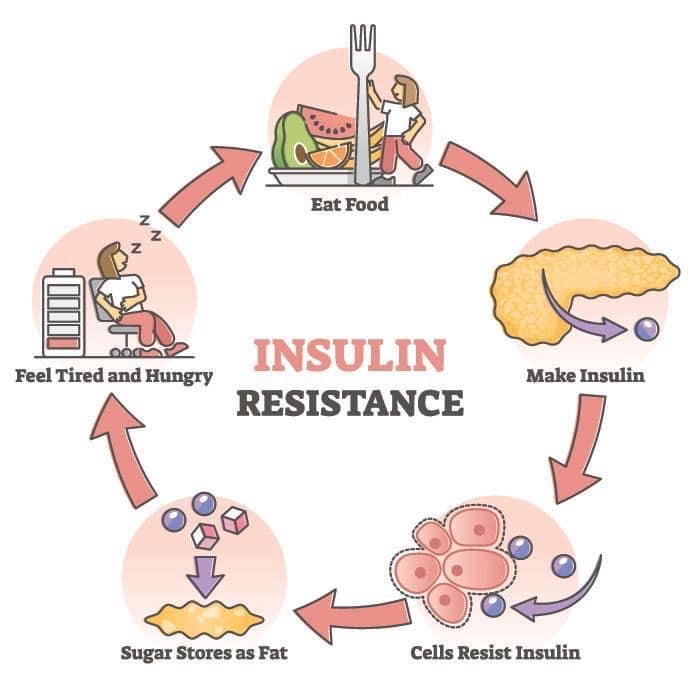
Metformin lowers insulin resistance by countering cortisol secretion, which in turn reduces glycogenolysis and gluconeogenesis. It is typically prescribed according to the circadian rhythm of cortisol secretion.
Circadian Rhythm of Cortisol Secretion
Cortisol levels normally dip in the evening and rise again in the early morning. However, due to modern lifestyles—such as late dinners and staying up late—cortisol levels may fail to fall, resulting in elevated blood sugar levels.
To address this, Metformin is usually prescribed in the evening (after an evening snack or post-dinner). The total daily dose can be up to 2 grams, divided into doses of 500 mg to 1 gram. Typically, one starts with 500 mg after dinner or an evening snack. If morning fasting blood sugar remains high, the dose can be increased to 1 gram. If further increase is needed, another 500 mg can be added after lunch, and then post-breakfast.
Metformin and Weight Loss
Because Metformin reduces cortisol secretion, it also increases salt and water excretion from the body, leading to mild to moderate weight loss. However, in patients with pre-existing adrenal fatigue (e.g., thin, debilitated individuals with chronic illnesses, autoimmune issues, or senior citizens), Metformin can cause signs and symptoms of adrenal insufficiency. These symptoms may include a bitter taste, epigastric pain, diarrhea, and hyponatremia (a particularly serious complication in seniors, especially if they have an intercurrent illness like a viral fever, which could precipitate adrenal insufficiency).
In such cases, the Metformin dose may need to be reduced or completely stopped, and steroids might need to be supplemented.
Considerations for Metformin Use
There are two important points to keep in mind:
- During a critical illness, if ACTH levels are within the normal range with the short Synacthen test, there might actually be adrenal insufficiency. Ideally, ACTH levels should be higher during a critical illness.
- Elderly individuals may appear obese due to poor abdominal muscle tone as a result of gluconeogenesis, which could lead to a misdiagnosis of obesity and inappropriate initiation of Metformin.
Metformin is recommended for people who are young, overweight, and exhibit signs of increased cortisol secretion (metabolic syndrome) and insulin resistance.
Since Metformin works by reducing cortisol secretion, it does not cause hypoglycemia; instead, it prevents blood sugar levels from rising
